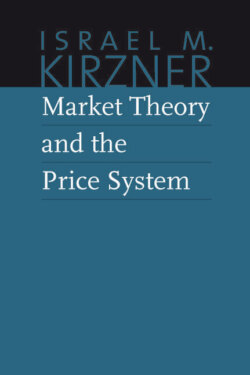Читать книгу Market Theory and the Price System - Israel M. Kirzner - Страница 48
На сайте Литреса книга снята с продажи.
Utility as a Relative Concept
ОглавлениеWe conceive of utility as a purely relative notion. In saying that a good has utility to a man, we mean that it possesses importance, or significance, to him because of its power to remove uneasiness. As we have seen, “importance” and “significance” take on meaning only in the context of a comparison with other goods. Utility reveals itself only in acts of choice when two or more goods are being compared. Thus, it is quite meaningless to conceive of the utility of a loaf of bread, as it were, in a vacuum. All we can say is that a loaf of bread may have either more or less utility than a glass of beer, a news magazine, or twenty cents.
If utility could be identified with some “objective” property of a good, say its mass, calorific value, or even moral worth, then the concept would not depend on the relationship between one good and another. But the utility of demand analysis refers to none of these objective qualities and does, therefore, by its very definition, imply a comparison with other goods or services. Utility refers to position on a scale of values. Without other goods or services, there is no scale of values and hence no utility concept at all.
The relative character of utility means that men’s preferences can be the subject of interpersonal comparisons. There is, as we have seen, no value scale upon which the relative positions of a loaf-of-bread-for-A and a loaf-of-bread-for-B can be observed. But it may be possible for an observer to discover whether a loaf of bread bears the same relationship to twenty cents on A’s scale of values as it does on B’ s; and it may be possible to assert that a loaf of bread has greater utility to A than twenty cents, but that for B the situation is reversed. In fact, this kind of assertion is, as we shall discover, the foundation of market theory.
